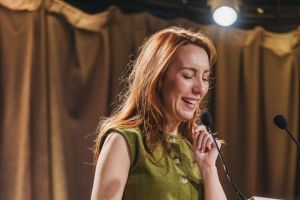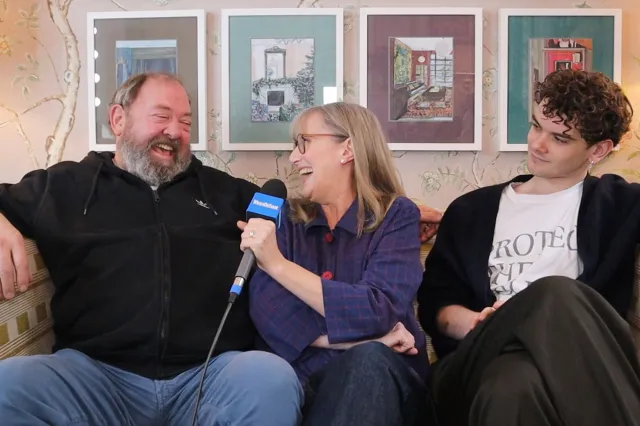Writer/composer Alexander S. Bermange on… making a musical from the Cuban Missile Crisis
Alexander S. Bermange is a composer and lyricist, whose works include Plague Over England and Murder On Air.
His musical Thirteen Days, which follows the course of the Cuban Missile Crisis, will be performed at the Arcola Theatre on 7 and 8 September 2012. Here he shares with us his motivation for writing the show…
The Cuban Missile Crisis is the closest the world has come to being wiped out by nuclear war. For just under a fortnight in 1962, the very real threat of a nuclear holocaust was felt by people around the globe.
Recent events ensure that weapons of mass destruction remain rooted in our consciousness fifty years on, and certain countries seem more intent than ever on flexing their nuclear muscles.
So now is surely an appropriate time to recall those thirteen days in 1962 when two markedly different world leaders really did hold the lives of millions in their hands.
No other historical event ever fascinated like the Cuban Missile Crisis. The battles and campaigns of the two World Wars – not to mention all of the other events and individuals my GCSEs required committing to memory — never aroused the same level of interest in me that this international game of brinkmanship did.
Over subsequent years, I soaked up the many documentaries and radio programmes – not to mention the inevitable Hollywood movie – tackling the subject. I was always pleased by a new discovery, a different angle, a previously unheard witness account. But could this form the basis of a musical that would not only interest and intrigue but also move and excite? Was this material that could touch the heart as well as engage the brain?

The cast of Thirteen Days in rehearsal. Photo: Oscar Blustin
Enter the Titanic – a subject of similar fascination to me. But no documentary of book ever engaged my emotions, made me really feel for the unfortunate victims, made me cry, until James Cameron’s film version.
By interweaving a story involving characters who, though fictional, are representative of real people, and through his use of James Horner’s exquisite music, he made me engage with the story of this ship in a way that none of the documentaries had got near to.
Hence my three principal characters in Thirteen Days: the Cuban student, the Soviet officer and the American spy. Though of my own invention, it is my intention that they are very “real”, that they hold individual characteristics while also representing their respective nations, that they enable an audience to experience the unfolding drama through their eyes.
But Thirteen Days is not just the lovers’ story. I did not want to gloss over the three leaders – Kennedy, Khrushchev and Castro – whose every move had potentially devastating consequences. But I also didn’t want them to become musical theatre caricatures. So though the piece is through-composed, I wrote these as parts to be acted first and foremost.
And last, but certainly least, I was also keen that Thirteen Days tell the story of the people – the citizens of the three nations most directly affected by the crisis. Especially in the case of Cuba and the Soviet Union, this has been considerably less documented, with first-hand accounts less readily accessible. That only increased my excitement when I uncovered a memory, a photo, a phrase that could be integrated into this third narrative strand.
My subject matter also held a strong musical appeal. With my story set across three nations, this was an opportunity to create a score that not only drew on Western and Eastern influences but also contained flavours of the Latin styles that have produced such exciting results when adopted by many of today’s pop writers and performers.
I am delighted that two of the songs from the show, “Anyone But You” and “More Than A Memory”, have already found favour amongst musical theatre fans and performers through Jenna Lee-James and Dean Collinson‘s recording of the former, and Oliver Tompsett‘s of the latter, and I naturally hope that the remainder of the score will be similarly embraced by the audiences at the Arcola Theatre.
I am very excited to be working on this production with director Matthew Gould and designers Ben Rogers and Jean Gray (the team behind the recent highly acclaimed West End revival of The Mystery Of Edwin Drood), who will certainly be transforming the Arcola’s exciting, embracing, new in-the-round performance space into a vibrant world that is, however, teetering on the edge of its own destruction.












